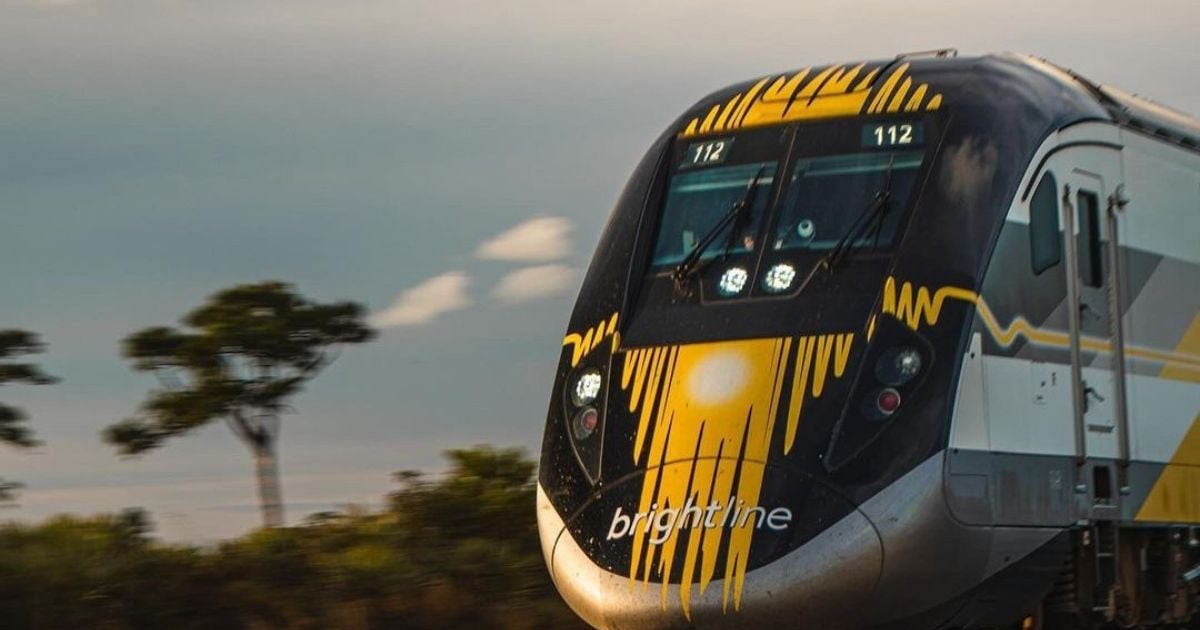In a recent move, Florida has passed legislation that alters the way insurance and liability are handled for commuter train services operated by Brightline in collaboration with Florida East Coast Railway (FECR). This legislative shift comes in response to a series of accidents, some fatal, sparking heightened concern among residents, safety advocates, and communities, notably the Cuban population residing in large numbers in Miami-Dade, Broward, and Palm Beach counties. The legislation's significance was highlighted by Insurance Business Magazine, a leading authority on insurance and risk issues.
Effective July 1, the Coastal Link Commuter Rail Service Act (CS/HB 867) permits public agencies to assume a portion of the liability in the event of train accidents affecting their passengers or visitors to the rail corridor. This means that, in certain instances, the state and local governments could be responsible for paying substantial compensation, even if Brightline or FECR shares some of the blame.
The Implications of the New Legislation
Under this law, state and local agencies that enter into agreements with Brightline are authorized to purchase insurance and cover damages from accidents, “even if the responsibility lies partially or entirely with the private operator.” In incidents caused by intentional misconduct where damages exceed $5 million, Brightline is required to contribute up to the same amount. This clause aims to prevent the financial burden from falling solely on public coffers.
The legislation sets a firm cap on liability coverage at $323 million per incident, aligning with the federal liability limit established under Title 49 of the United States Code, Section 28103. This cap encompasses claims for punitive damages. While these provisions allow for a broader distribution of risks in public-private rail partnerships, the legislation clarifies that none of these provisions constitute a waiver of sovereign immunity nor an increase in the legal liability limits set forth in Section 768.28.
It's crucial to note that Brightline and FECR are not classified as “officials, agents, employees, or subdivisions of the state” and therefore do not receive sovereign immunity protections.
Enhanced Safety Measures or Merely Legal Maneuvers?
Although the legislation aims to pave the way for the expansion of commuter service, particularly along the East Coast corridor, the underlying question remains: who truly safeguards the passengers and communities near the tracks? For Cuban families utilizing Brightline to travel between South Florida cities, this measure raises more questions than answers. Brightline's accident history, as one of the fastest trains in the nation, has left a trail of victims, mourning, and legal proceedings.
With this new law, the state might end up footing the bill for future tragedies, potentially reducing the pressure on private operators to enhance their safety measures.
Recent Brightline Train Incidents in Florida
In September 2024, a Brightline train collided with a vehicle stalled between crossing gates in Broward County. The driver narrowly escaped moments before the crash, but the incident's footage, broadcasted by Only in Dade, showcased the crash's severity and ignited criticism over road safety negligence and inadequate signage at certain South Florida rail crossings.
This was not an isolated event. Just days prior, a pedestrian was struck by a Brightline train in Delray Beach at the intersection of Atlantic Avenue and Railroad Avenue, as reported by Channel 12 News. Additionally, in June of the same year, another collision occurred involving a train and a car stuck on the tracks in Hollywood, Broward County.
These incidents have fueled the debate over the effectiveness of current safety measures surrounding the rail service. Although some accidents result from human error, such as ignoring signals or experiencing panic attacks while driving, the frequency of these collisions has raised concerns among users and residents of affected communities, who now closely monitor any shifts in the distribution of responsibility between private operators and public entities.
Florida's Train Safety Legislation: Key Questions Answered
What is the main purpose of Florida's new train safety law?
The main purpose of the new law is to adjust how insurance and liability are managed for commuter train services operated by Brightline and FECR, allowing public agencies to bear part of the liability in train accidents.
How does the new legislation affect liability coverage for train accidents?
The legislation sets a liability coverage limit at $323 million per incident and allows for a broader distribution of risks between public agencies and private operators like Brightline.
Are Brightline and FECR protected by sovereign immunity under the new law?
No, Brightline and FECR are not considered state officials, agents, employees, or subdivisions, and thus do not receive sovereign immunity protections under the new law.
